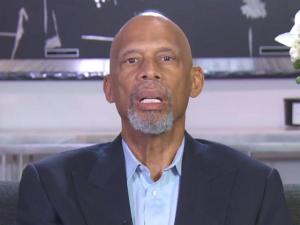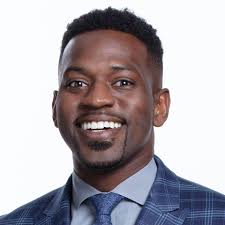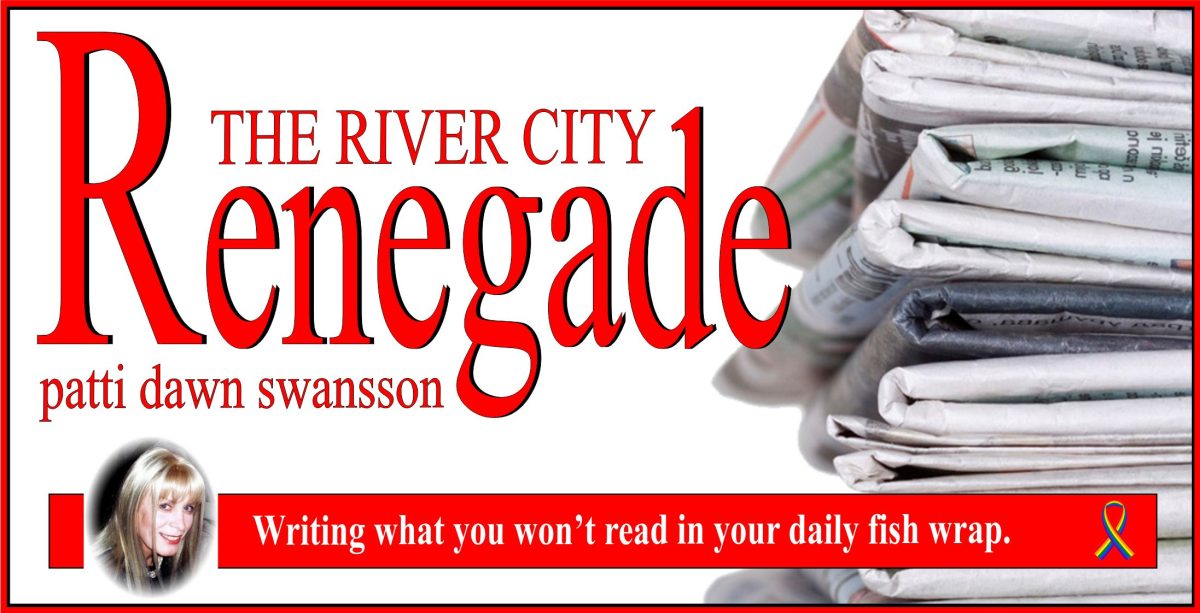The soft, societal underbelly of Canadian jock journalism is being exposed.
Again.
It is ever thus when real-life concerns (racism, gender equality, sexism, homophobia, misogyny, domestic violence, etc.) invade the playground and relegate final scores, statistics and Tiger Woods’ pursuit of Grand Slam golf titles to a seat of secondary thought.
That, of course, is what’s unfolding now as we observe the horror that is Battleground America.
Unrest has given way to rioting and rubble, the bitter backwash from the death of George Floyd, a Black man whose name held no position in the public conscience until video evidence confirmed that a Minneapolis-St. Paul police officer had used a knee to squeeze the final breath out of him.
In itself, the death of Floyd is not a sports story. Rogue cop kills a Black man. They’ve seen this movie, too many times.

Except Michael Jordan is talking about this one. Masai Ujiri is talking about it. LeBron James is talking about it. Evander Kane is talking about it. Blake Wheeler, Jonathan Toews and Logan Couture are talking about it. Kareem has weighed in. Numerous pro sports organizations have issued communiqués condemning racism and social injustice, and that includes the National Football League, which has managed to place itself in the awkward position of being full-score against Colin Kaepernick’s knee of peaceful protest and, at the same time, against a cop’s knee of death.
But here’s someone who can’t talk about it from a platform of lived experience—99 per cent of Canadian sports scribes.
Unless your name is Morgan Campbell or Donnovan Bennett, the best our flowers of jock journalism can do is provide sound bites from Ujiri, Jordan, LeBron, Kareem, Kane et al.
And, yes, it’s terrific when they spread the word. It’s important.
Yet they themselves cannot provide explanation, analysis or offer first-person anecdotal evidence in the arena of marginalization. They fall short, like a warning-track fly ball. They are incapable of commenting and opinionating from a foundation of been there, had that done to me. They don’t know Black. Just like they don’t know female. They don’t know fists of fury. I doubt many of them know or care that this is Pride Month.
Consider this passage from a Michael Grange essay for Sportsnet the other day:

“It was also a reminder that I’ve never had a moment to be nervous about the police. That I’ve never sent my teenaged son into the world and worried that he could be a victim of a tragic misunderstanding, or worse. I’ve never had to wonder if my skin colour or ethnicity or gender was an obstacle to me reaching my potential. No one should have those fears and concerns. Not today, not ever. I believe we should all act, think, and vote in ways that reflect those fundamental values. I’ve never felt the need to write that before because it’s always seemed so self-evident. So clear. It’s not.”
After viewing the George Floyd death video, a white scribe like Grange might have cringed and muttered something like “That’s just horrible” and maybe even wept, but a Black writer would be more apt to gasp, “Good lord, that could be me or my child,” then lock his doors and keep his family behind cover.
When racism in hockey became the topic du jour late last year, Ron MacLean had a natter with his Hometown Hockey co-host Tara Slone and Black filmmaker Kwame Mason, and he delivered this confession: “It’s a real eye-opener that I don’t recognize the structural racism or sexism that’s going on.”

It was an astonishing admission, but MacLean found no requirement to give ponder to racism and sexism because it wasn’t, and isn’t, his ox being gored. He has the privilege of being white and male, which is totally in keeping with the makeup of jock journalism.
I presented these numbers from the most recent Associated Press Sports Editors Racial and Gender Report Card (2018, a study of 75 newspapers/websites in Canada and the U.S.) on Sunday, but they bear repeating:
90 per cent of sports editors were male;
85 per cent of sports editors were white;
88.5 per cent of reporters were male;
83.4 per cent of columnists were male;
82.1 per cent of reporters were white;
80.3 per cent of columnists were white;
44 women were columnists at ‘A’ level newspapers/websites, and 38 worked for ESPN. If the ESPN female columnist were removed, the percentage of female columnists would drop to 2.9 per cent.
Is that a recipe for racist, sexist coverage? Not necessarily. But it does explain why there are so few voices that speak to the very heart of those issues. Also why the message often gets misshapen.
For example, when Auston Matthews of the Toronto Maple Leafs dropped his trousers to his ankles and mooned a female security guard at 2 o’clock in the morning last summer in Scottsdale, Ariz., male sports scribes turned the incident into a forum on his suitability to serve as team captain. They wrote it off as frat-boy frolic and gave scant consideration to his victim, Fayola Dozithee, and the every-day fears of females.

“We all do stupid things,” Cathal Kelly scribbled in the Globe and Mail. “We are all especially likely to do stupid things when it is late, when we are drunk and when we are 22.”
I submit that’s the language of a man who’s done a fair bit of stupid-thing, frat-boy frolicking himself, some of which might have victimized women.
On the domestic violence file, male scribes crucified NFL commissioner Roger Goodell for his botched handling of the Ray Rice case after viewing video evidence of the former running back dragging his unconscious girlfriend off an elevator, but then the boys celebrated the arrival of woman-beating Johnny Manziel to the Canadian Football League.
“Looking forward to seeing Johnny Manziel play in the CFL. Win-Win for the CFL,” rejoiced Chris Cuthbert of TSN.

“It will be fun for everyone to watch,” agreed Dan Barnes of Postmedia.
“Welcome to Canada, Johnny Manziel. And where do I sign up,” chimed in Steve Simmons of Postmedia.
Again, no thought given to the big picture because they aren’t female and vulnerable.
Meantime, there are no figures for the percentage of gay editors/columnists/reporters at major newspapers/websites, but I doubt I’m far off the mark if I suggest it’s less than 1 per cent. Consequently, there’s no one with lived experience to speak to the issue when someone like Michael Sam, Jason Collins or Robbie Rogers are targeted with anti-gay language and deeds.
When Sam became the first openly gay man to participate in a professional football game, many in the LGBT(etc.) collective were delighted and proud. But one prominent jock journo, the aforementioned Simmons, denied that Sam had actually participated in a Canadian Football League game.

“In reality, pro football still awaits its first openly gay player,” he wrote.
After Sam bugged out on the Montreal Alouettes due to mental health issues, an unidentified sports scribe accused him of “faking it.”
So we had one heterosexual man insisting that a gay man never existed, and another heterosexual man presuming to have first-hand knowledge of the demons that torture and haunt a gay man’s mind.
Jock journalism in our country has a serious diversity deficiency.
It could serve as a vehicle for societal change, but it isn’t constructed that way. Hiring practices make the business too white, too male and too hetero.
The women who appear on TSN, for example, are allowed to be pretty and read a teleprompter, but they aren’t allowed an opinion, the exception being women’s soccer. When skin hue is the topic du jour, Tim Micallef and Sid Seixeiro of Sportsnet can natter about it, but they are unable to reach the core of the issue until Donnovan Bennett is invited into the discussion. He might crack wise about “dial-a-Negro,” which he did, but there’s truth hidden in that joke.

Bennett authored a thought-provoking essay on the current racist unrest in the U.S., and he closed with this:
“I’m going to challenge my own industry. If you work in sports media and make a living off the talent and ingenuity of black athletes, the least you can do is use your journalistic skills and privilege to show that black lives have equal value to your own. The least you can do is allot more than 28 or 29 days in February to humanizing black people.”
My guess is they’ll have found a new chew toy by this time next week.
FOOTNOTE: Both Bennett’s essay and an article on former National Basketball Association player John Amaechi, who came out as gay after his playing career, are live on the Sportsnet website today. Yet the overlords at Sportsnet refuse to allow discussion on these race and LGBT(etc.) issues by disabling comments on both pieces. Go figure.

You must be logged in to post a comment.